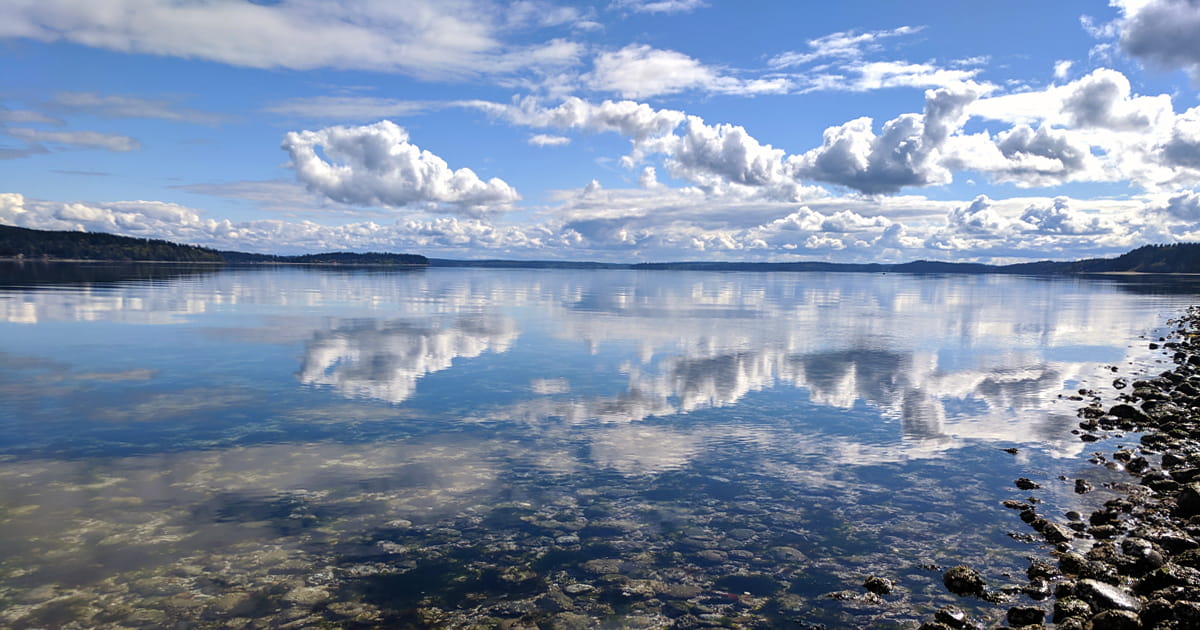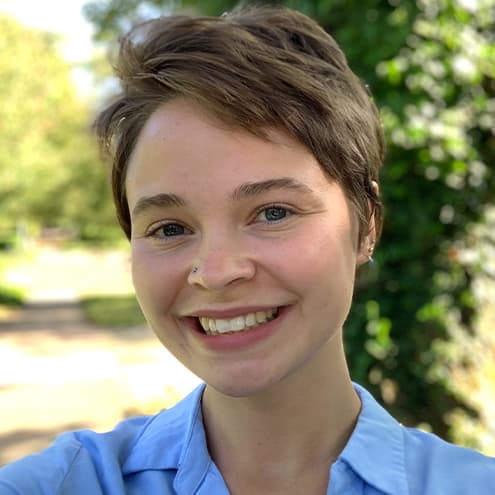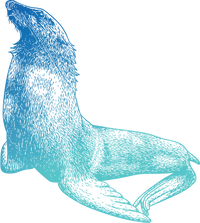Aquarium fellows reflect on the Empathy Fellowship program’s inaugural year, part 2
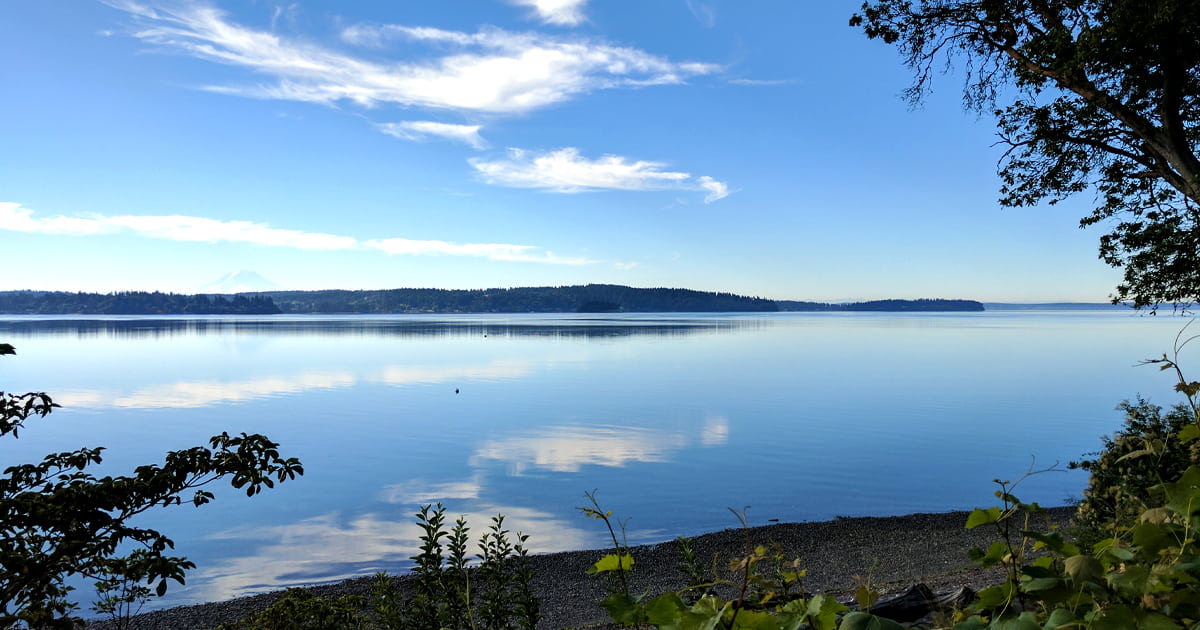
Our new Empathy Fellowship program kicked off last year, and the first cohort has completed their one-year terms! The capstone of these full-time, paid, fully benefited positions is to develop an empathy community action project (ECAP). The fellows research, implement and present on projects in order to apply all that they’ve learned to a real-world, marine-conservation-related issue that impacts themselves and their community. (Interested in applying? Visit our Empathy Fellowship page for details.)
Now our first two fellows offer reflections on their experiences in the program. Below we hear from Astrid Moncaleano with her thoughts. (You can read the first installment by Jules Rader here.)
Part 2 of 2: Empathy Fellow Astrid Moncaleano
It’s incredible to think that a year has passed since I started this journey as a fellow. I couldn’t imagine how I would do this first work experience in the U.S. and the changes it would bring. Fortunately for me, I came to an organization and a team where I always felt welcomed and valued from day one. I found dedicated, gentle, relatable and passionate people; a new work environment; a new way of working with a different management style; new ways of learning; and the freedom and confidence to complete my tasks.
Part of why I consider this a unique experience was that learning from different approaches—through books, documentaries, films, TEDx Talks—gave us a broad spectrum of knowledge about empathy for people and wildlife. It incorporated a better understanding of diversity and inclusion in our work in order to generate transformative changes in our workplaces, communities and society.
For my ECAP topic, I implemented ideas aligned with my professional purpose. The result was the Latinx Empathy Workshop, with the invaluable participation of Aquarium professionals and Latinx professionals as role models, allowing Latinx youth to explore new professional development perspectives in the conservation movement. Creating this space where the professionals shared their personal and professional stories and experiences was an emotional and inspiring moment to empathize and recognize the struggles, challenges and moments of joy of being a professional in conservation. The audience was connected and represented with the storytelling, and presentations broadened their vision on job search, strengths, skills, values, environmental justice and climate action.
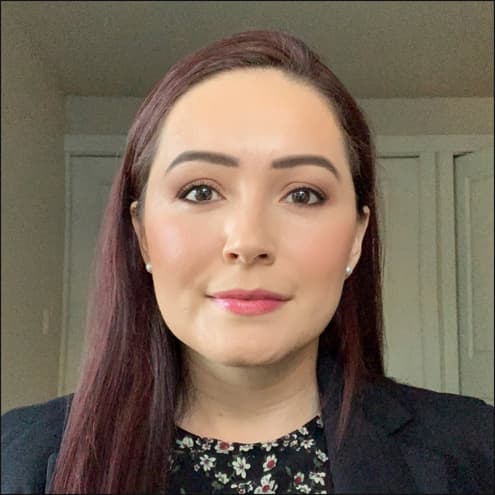
I learned from all aspects of the workshop planning. Promoting and putting together a team to achieve the proposed goals is an enriching learning process that makes you grow as a professional, gain confidence, acquire new skills and empower you to generate better ideas.
*(English translation below.) En mi interminable lista de cosas por las que agradezco al Programa de becas Empathy (EFP) está la oportunidad de trabajar generando contenido bilingüe. Logre incorporar contenido en español e inglés en el taller y colaboré en la traducción al español de materiales de divulgación utilizados en diferentes programas como Cedar River Salmon Journey y Beach Naturalists. Participar en la interpretación del tour virtual en español fue también una experiencia de satisfacción que me ayudó a formarme en nuevas habilidades y pensar en nuevos horizontes profesionales. Es muy satisfactorio creer que estos materiales servirán a nuestros públicos y comunidades y se convertirán en valiosas herramientas de trabajo en diferentes actividades y programas dentro del acuario, logrando la educación en conservación más inclusiva.
Thanks to the fellowship, I feel that I’ve become a more empathetic person, more confident of my skills and able to face new challenges, and I better understand how workplaces function in the U.S. and how I can adapt myself to this culture. I see future possibilities for working with professionals of diverse cultural origins and with other organizations, creating spaces with different purposes of empathy for people and marine life, building community, exchanging experiences and connecting with multicultural audiences. I hope many professionals like me will receive this opportunity to enrich their work environment with the new perspectives that migrants bring wherever we go.
*(I’m grateful to the Empathy Fellowship for an endless list of reasons, and among them is the opportunity to create bilingual content. I incorporated Spanish and English content into the workshop and collaborated on the Spanish translations of outreach materials for programs like the Cedar River Salmon Journey and Beach Naturalist. Participating in virtual tours as a Spanish interpreter was also a satisfying experience that helped me develop new abilities and expand my professional horizons. It’s very satisfying to think that those materials will serve the public and community and become valuable tools in different activities and programs within the Aquarium, achieving higher inclusivity of conservation education.)
